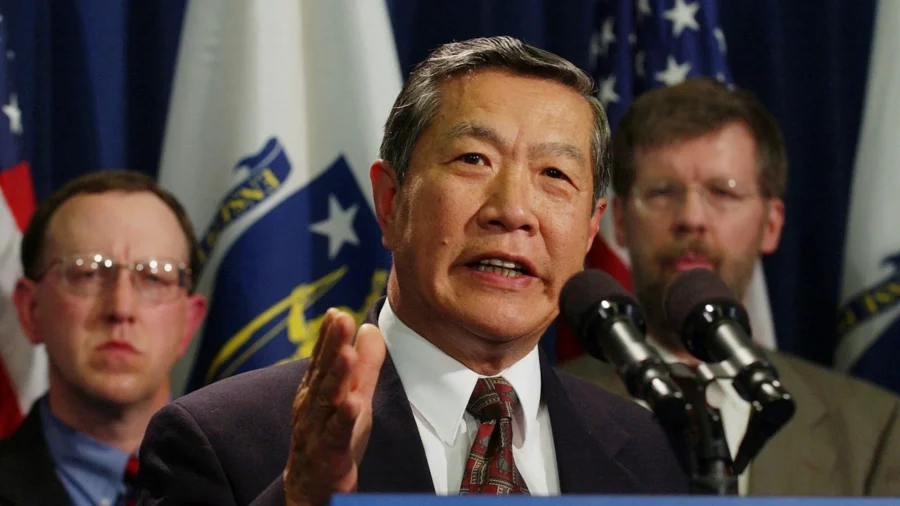HARTFORD, Conn.—Connecticut’s attorney general has agreed to a $25.2 million settlement with two men who spent decades in prison for murder, based partly on evidence presented by famed forensic scientist Henry Lee that a judge later found was fabricated.
Ralph “Ricky” Birch and Shawn Henning were convicted in the Dec. 1, 1985, slaying of Everett Carr, after Mr. Lee testified there were stains consistent with blood on a towel found in the 65-year-old victim’s home in New Milford, 55 miles (88 kilometers) southwest of Hartford.
A judge vacated the felony murder convictions in 2020, after testing found the towel was free of blood. The two men filed a federal wrongful conviction lawsuit against Mr. Lee, eight police investigators, and the town of New Milford.
U.S. District Court Judge Victor Bolden ruled in July that there was no evidence Mr. Lee ever conducted any blood tests on the towel, and a summary judgement was issued against him.
Under the settlement, which must still be approved by the General Assembly, Mr. Birch and Mr. Henning would each receive $12.6 million, Attorney General William Tong’s office said.
“We are pleased to have reached an agreement in principle to resolve these matters in the best interest of all parties,” the attorney general’s office and lawyers for Mr. Birch and Mr. Henning said in a statement released Tuesday night. “We look forward to presenting this settlement to the legislature and reserve further comment until that time.”
Email messages were left Wednesday seeking comment from Mr. Lee.
Mr. Lee issued a lengthy statement in July denying he fabricated any evidence. He instead suggested the traces of blood may have degraded in the 20 years between the crime and when experts for the defense tested the towel.
“I have no motive nor reason to fabricate evidence,” he wrote. “My chemical testing of the towel played no direct role in implicating Mr. Birch and Mr. Henning or anyone else as suspects in this crime. Further, my scientific testimony at their trial included exculpatory evidence, such as a negative finding of blood on their clothing that served to exonerate them.”
No forensic evidence existed linking Mr. Birch and Mr. Henning to the crime. The crime scene included hairs and more than 40 fingerprints, but none matched the two men. Blood also was not found on their clothes or in their car.
Mr. Lee testified at trial that it was possible for the assailants to avoid getting much blood on them.
Mr. Lee, now 84, was the head of the state’s forensic laboratory and is now a professor emeritus at the University of New Haven’s Henry C. Lee College of Criminal Justice and Forensic Sciences. He shot to fame after his testimony in the 1995 O.J. Simpson murder trial, in which he questioned the handling of blood evidence.
Mr. Lee also served as a consultant in other high-profile investigations, including the 1996 slaying of 6-year-old JonBenet Ramsey in Colorado; the 2004 murder trial of Scott Peterson, who was accused of killing his pregnant wife Laci; and the 2007 murder trial of record producer Phil Spector.
Mr. Lee’s work in several cases has come under scrutiny, including in the murder case against Spector, in which he was accused of taking evidence from the crime scene.
By Pat Eaton-Robb


